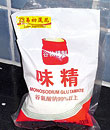Here are some recipes for Protein Powder Shakes and/or Smoothies! Enjoy! :)
1 scoop protein powder
8-10 oz soy milk (Or regular milk)
a handful of frozen mixed berries
I use 1/2 scoop whey protein powder
1/2 frozen banana or some frozen fruit
and a bit of yogurt.
Lots of Ice
1 scoop 1 scoop whey protein
8 oz CC milk
1 oz heavy cream
1 oz cream cheese
2.5 T flaxmeal
6 drops stevia
1 Banana
1 Organic
full-fat yogurt (no sugar)
1 Scoop Chocolate
Protein Powder
1/4 Cup Coconut
Flakes
1/2 Cup Frozen
Blueberries
1 banana cut into
chucks
1 or 2 scoops of
whey protein( according to the brand)
3 large
strawberries
1/4 cup
blueberries
1/2 of skim milk
1/2 cup ice
1/2 cup of yogurt
1/4 cup almonds
1/2 cup raisins
1 banana cut into
chucks
1 or 2 scoops of
whey protein( according to the brand)
1 cup of soy milk
1/2 cup ice cubes
1 tbsp protein
powder(or recommended amount)
4 strawberries
8 cherries without
seeds
5 peach slices
1/2 a banana
1 cup of nonfat
milk
2 scoops whey
protein
1 ripe plum,
pitted
Juice of 1 lemon,
squeezed
8 oz. water
½ cup ice cubes
1 scoop whey
protein
½ can diet cream
soda
3 ice cubes
4 oz. water
2 scoops whey
protein
2 oz. pineapple
juice
6 oz. water
1 scoop whey
protein
1 cup frozen
unsweetened peaches
¼ cup raspberries
Sweetener to taste
8 oz. water

 Pro-inflammatory Agent: Excessive sugar intake causes tooth decay and has been linked to increased risks of obesity, inflammation and chronic diseases such as
Pro-inflammatory Agent: Excessive sugar intake causes tooth decay and has been linked to increased risks of obesity, inflammation and chronic diseases such as  Pro-inflammatory Agent: Common vegetable cooking oils used in many homes and restaurants have very high omega-6 fatty acids and dismally low omega-3 fats. A diet consisting of highly
Pro-inflammatory Agent: Common vegetable cooking oils used in many homes and restaurants have very high omega-6 fatty acids and dismally low omega-3 fats. A diet consisting of highly  Pro-inflammatory Agent: Trans fatty acids are notorious for their double whammy effect: they increase the levels of ‘bad’ cholesterol, while lowering levels of the ‘good’ cholesterol. But that’s not all they can do. They have also been found to promote inflammation, obesity and resistance to insulin, laying the ground for degenerative illnesses to take place.
Pro-inflammatory Agent: Trans fatty acids are notorious for their double whammy effect: they increase the levels of ‘bad’ cholesterol, while lowering levels of the ‘good’ cholesterol. But that’s not all they can do. They have also been found to promote inflammation, obesity and resistance to insulin, laying the ground for degenerative illnesses to take place. Pro-inflammatory Agent: As much as 60% of the world’s population can’t digest milk. In fact, researchers think that being able to
Pro-inflammatory Agent: As much as 60% of the world’s population can’t digest milk. In fact, researchers think that being able to  Pro-inflammatory Agent: Commercially produced meats are feed with grains like soy beans and corns, a diet that’s high in inflammatory omega-6 fatty acids but low in anti-inflammatory omega-3 fats. Due to the small and tight living environment, these animals also gain excess fat and end up with high saturated fats. Worse, to make them grow faster and prevent them from getting sick, they are also injected with hormones and fed with antibiotics. The result is one piece of meat which you and I shouldn’t be eating.
Pro-inflammatory Agent: Commercially produced meats are feed with grains like soy beans and corns, a diet that’s high in inflammatory omega-6 fatty acids but low in anti-inflammatory omega-3 fats. Due to the small and tight living environment, these animals also gain excess fat and end up with high saturated fats. Worse, to make them grow faster and prevent them from getting sick, they are also injected with hormones and fed with antibiotics. The result is one piece of meat which you and I shouldn’t be eating. Pro-inflammatory Agent: Researchers at the
Pro-inflammatory Agent: Researchers at the Pro-inflammatory Agent: Regular high consumption of alcohol has been known to cause irritation and inflammation of the esophagus, larynx (voice box) and liver. Over time, the chronic inflammation promotes tumor to grow and gives rise to cancer at the sites of repeated irritation.
Pro-inflammatory Agent: Regular high consumption of alcohol has been known to cause irritation and inflammation of the esophagus, larynx (voice box) and liver. Over time, the chronic inflammation promotes tumor to grow and gives rise to cancer at the sites of repeated irritation. Pro-inflammatory Agent: A lot of the grains we eat nowadays are refined. They are devoid of fiber and vitamin B compared to unpolished and unrefined grains that still have the bran, germ and the aleurone layer intact. This makes refined grains as good as refined sugars, which are practically empty calories. And like refined sugars, refined grains have a higher glycemic index than unprocessed grains and when they are consistently consumed, can hasten the onset of degenerative diseases like
Pro-inflammatory Agent: A lot of the grains we eat nowadays are refined. They are devoid of fiber and vitamin B compared to unpolished and unrefined grains that still have the bran, germ and the aleurone layer intact. This makes refined grains as good as refined sugars, which are practically empty calories. And like refined sugars, refined grains have a higher glycemic index than unprocessed grains and when they are consistently consumed, can hasten the onset of degenerative diseases like  Pro-inflammatory Agent: Some artificial food additives like aspartame and monosodium glutamate (MSG) reportedly trigger inflammatory responses, especially in people who are already suffering from inflammatory conditions such as rheumatoid arthritis.
Pro-inflammatory Agent: Some artificial food additives like aspartame and monosodium glutamate (MSG) reportedly trigger inflammatory responses, especially in people who are already suffering from inflammatory conditions such as rheumatoid arthritis. Pro-inflammatory Agent: Why is this blank? Because it is meant for you to fill in with the food that you’re sensitive to. Many people are sensitive to certain food but are totally unaware about it. Unlike food allergy in which symptoms usually come fast and fiery, symptoms caused by food intolerance take a longer time to manifest. And when they do appear, they are often brushed off as common minor ailments such as tiredness and headaches. But repeated, long-term exposure to food that irritates can cause inflammation and lead to chronic diseases.
Pro-inflammatory Agent: Why is this blank? Because it is meant for you to fill in with the food that you’re sensitive to. Many people are sensitive to certain food but are totally unaware about it. Unlike food allergy in which symptoms usually come fast and fiery, symptoms caused by food intolerance take a longer time to manifest. And when they do appear, they are often brushed off as common minor ailments such as tiredness and headaches. But repeated, long-term exposure to food that irritates can cause inflammation and lead to chronic diseases.